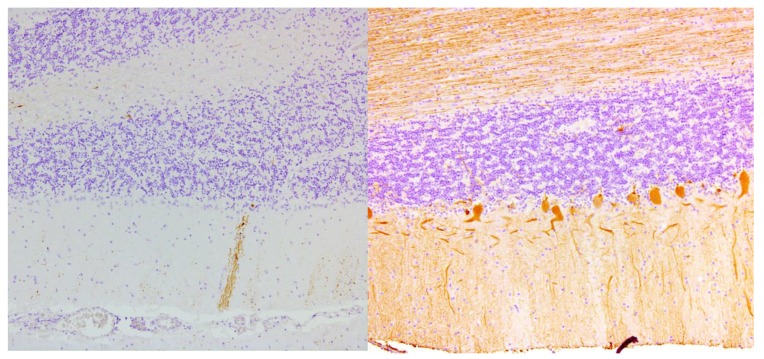
We hear a lot these days about the impact of diet for boosting immunity. While it is true that carrots, kale, or oranges are good sources of immunity-boosting phytochemicals, it is also true that foods—even ‘healthy’ foods– can also cause immune dysregulation or autoimmune disorders in some patients.
Compounds—especially dietary proteins– within ordinary foods, are among the most common exogenous triggers of mucosal barrier injury and immune system dysregulation. Other common environmental insults are pathogens, chemicals, and heavy metals.
We know that certain foods such as wheat and dairy are more immunogenic than others, especially in the context of autoimmune disease. But the truth is there are many other potential food triggers. The picture is further complicated by the fact that the relative immunogenicity of different foods or food-derived compounds varies widely between individuals.
We also know that when food is cooked or modified in some way, the immune-triggering antigens in that food can change. For example, an individual might be reactive to cooked salmon but not to raw salmon.
In assessing patients who are experiencing symptoms suggestive of autoimmune disease, we need to take all these variables into consideration.
Dietary Proteins & Leaky Gut
There is a bidirectional causality between intestinal permeability and immune system reactivity to food-derived triggers. In other words, leaky gut can lead to food sensitivities, and food sensitivities can cause leaky gut.
In 2015, Hollon and colleagues at the Naval Medical Center, Portsmouth, VA, showed that exposure to gliadin induced an increase in intestinal permeability in all individuals regardless of whether they were active celiac disease patients, those with celiac disease in remission, those with non-celiac gluten sensitivity, or non-celiac control subjects.
Based on the normal integrity of intestinal tight junctions, one would expect that the intestinal epithelium—especially in non-celiac control subjects–should be impermeable to indigestible macromolecules such as the 33-mer gliadin peptide fragment. Yet this was not the case, suggesting that gluten exposure alters mucosal barrier function resulting in increased intestinal permeability, independent of the prior presence of celiac disease (Hollon J, et al. Nutrients. 2015)
Leaky gut makes it possible for bacteria and other toxins to seep through the intestinal wall and into the blood, which can then trigger immune dysregulation and ultimately autoimmune disease. Any disruption to the mucosal barrier–including disease, injury, drug exposures, or damage by toxins—can lead to breakdown of its protective functions.
About 70% of the immune system resides in the gut, and it is constantly exposed to antigenic substances in our diets that can induce the production of antibodies that not only react against the antigens themselves, but against the body’s own tissues. This a key process by which immune system dysregulation becomes frank autoimmune disease.
Molecular Mimicry & Autoimmunity
It is also one of the reasons why many autoimmune disorders can be tied to food sensitivities. Immunologist Aristo Vojdani, chief scientific advisor at Cyrex Labs, is among a number of researchers who hold that molecular mimicry plays a major role in this process.
“The peptide sequences of foods such as milk and wheat are similar to those of human molecules, such as myelin oligodendrocyte glycoprotein, human islet cell tissue, and human aquaporin 4 (AQP4). This similarity can result in cross-reactivity that leads to food autoimmunity and even autoimmune disorders, such as multiple sclerosis (MS), celiac disease (CD), and neuromyelitis optica,” Vojdani wrote in a 2015 review article (Vojdani A, Alt Ther Health Med. 2015).
Aquaporins found in corn, soybean, spinach leaf and tomato could potentially cross react with human aquaporin-4—one of the most important water-regulating proteins found in the cells of the brain and spinal cord. This sort of cross-reactivity can lead to increased permeability of the blood-brain barrier (BBB)
Simply put, dietary proteins that mimic human peptide sequences can dysregulate the immune system and lead to autoimmunity. And a wide variety of dietary proteins can cause this sort of cross-reactivity, and it can adversely affect not only physical health but neurological and cognitive function too.
Some clinicians focus on beef and wheat proteins as the most important triggers of immune dysregulation and neuro-autoimmunity, but there are others that we need to consider.
For example, aquaporins found in corn, soybean, spinach leaf and tomato could potentially cross react with human aquaporin-4—one of the most important water-regulating proteins found in the cells of the brain and spinal cord. This sort of cross-reactivity can lead to increased permeability of the blood-brain barrier (BBB)—the brain’s primary shield against toxic compounds.
People who show antibody reactivity to a high percentage of food-derived aquaporins also show increased neurological tissue antibody production. Putting it in the simplest of terms, dietary proteins in ordinary vegetables can sometimes trigger reactions that lead to neurological tissue damage (Lambert J, et al. Immunol Res. 2019).
An earlier study from the Max Planck Institute of Neurobiology showed evidence of molecular mimicry and cross reactivity between butyrophilin (BTN)–a bovine milk protein–and human myelin oligodendrocyte glycoprotein (MOG). MOG is localized at the outer surface of the CNS myelin sheath, making it an easy target for demyelinating autoantibody responses.
This line of work suggests that cow’s milk proteins may play a role in the autoimmune processes underlying multiple sclerosis (Guggenmos J, et al. J Immunol. 2004)
There is also recent research which points to a pathophysiological link between gluten exposure and a number of neurological disorders and symptoms. The so-named Gluten Related Neurological Disorders (GRND) spectrum includes gluten-related ataxia, loss of Purkinje cells, gliosis, astrocytosis, axonopathy, and loss of myelination (Rouvroye MD, et al. Nutrients. 2020)

Testing for Triggers
As in so many areas of medicine, an ounce of prevention is worth a pound of cure when it comes to immune dysregulation and autoimmune disease. If we can identify food sensitivities before a patient develops leaky gut and antibody cross-reactions, we can potentially avert the development of autoimmune disease.
When food is cooked or modified in some way, the immune-triggering antigens in that food can change. For example, an individual might be reactive to cooked salmon but not to raw salmon.
Food allergy testing requires a thorough and comprehensive approach. For example, instead of just evaluating for “wheat antibodies,” we recommend looking at multiple components of wheat, including alpha-gliadin, gamma-gliadin, omega-gliadin, glutenin, wheat germ agglutinin, and even non-gluten wheat proteins. Testing for specific components within a given trigger food like wheat will decrease the odds of false-negative results.
And, keeping in mind that people may react differently to specific foods depending on whether they are raw or cooked, it makes sense to test both. How often do your patients consume uncooked grains, beans, or meat? In most cases, not very often. So, you want to know how they react to these foods when they’re cooked.
The Cyrex Array 10 Multiple Food Immune Reactivity Screen gives doctors a comprehensive preventive test, which can provide real-world insights so that patients can modify their diets, ideally in advance of symptoms.
This test is the result of 30 years of scientific development, and evaluates an individual’s immune system reactions to a host of common fruits, vegetables, grains, nuts, meats, fish and seafood, and spices. It includes these foods in both raw or modified (cooked) form.
Array 10 also tests for reactivity to food enzymes, lectins and artificial food additives including meat glue, colorings and gums.
This ELISA-based array is excellent for patients who have unexplained gastrointestinal, neurological, dermatological, or behavioral symptoms, or are suspected of having increased intestinal permeability. It can help you pinpoint any potential dietary causes of the symptoms. You can also use it to monitor the effectiveness of customized dietary protocols.
Rather than vilifying entire categories of foods, comprehensive food reactivity testing enables you and your patients to definitively identify—and thus help avoid–their specific triggers.
Our diets play a central role in bolstering our immune systems. Unfortunately, foods sometimes play a significant role in sparking immune dysregulation and autoimmunity. As clinicians we need to keep an eye on our patients’ diets and guide them to the right dietary protein intake for their specific and individual immune reactivity profiles.
END
Chad Larson, NMD, DC, CCN, CSCS, is an advisor on the Clinical Consulting Team for Cyrex Laboratories. He holds a Doctor of Naturopathic Medicine degree from Southwest College of Naturopathic Medicine, and a Doctor of Chiropractic degree from Southern California University of Health Sciences. He is a Certified Clinical Nutritionist and a Certified Strength and Conditioning Specialist. He is particularly interested in the fields of endocrinology, orthopedics, sports medicine, and environmentally-induced chronic disease.
Mark R. Engelman, MD, is the Director of Clinical Consulting for Cyrex Laboratories. He is also the Founder and President of the Engelman Health Institute. Dr. Engelman’s curriculum vitae includes 23 years as the director of St. Joseph’s Medical Center emergency department; a standby physician for two American Presidential administrations; President of the Maricopa County American Heart Association; Chief Physician for the Arizona Boxing Commission, Founder and CEO of AmeriMed American Hospitals in Mexico.







